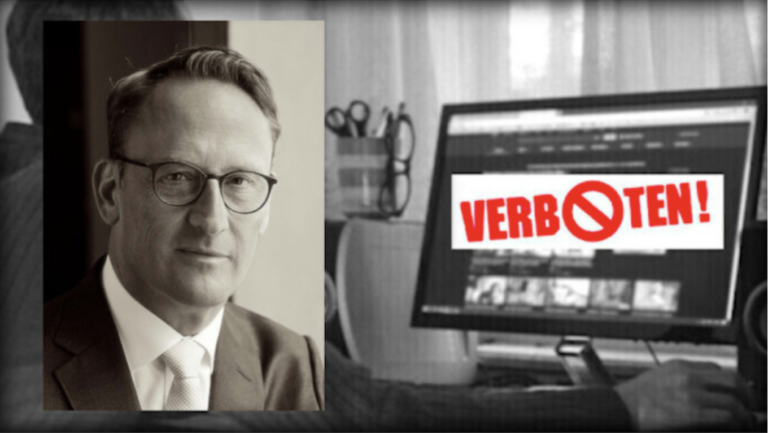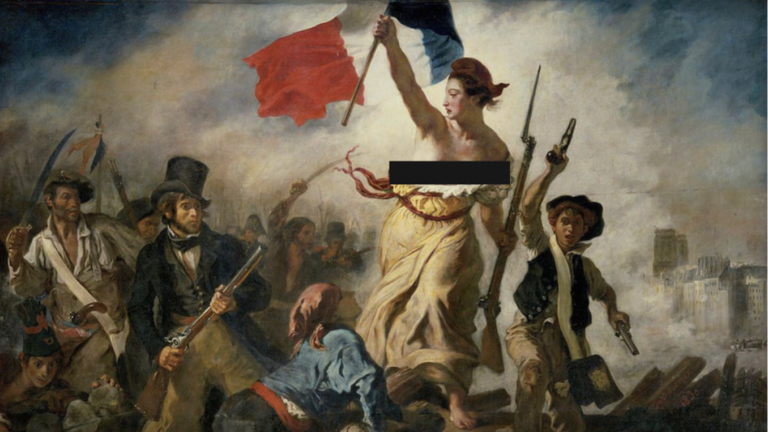BERLIN — German police have been threatening adult content creators with criminal charges for posting explicit videos and images on Twitter.
According to testimony by several German content creators, documents reviewed by XBIZ and an article published by Wired today, Berlin police have sent letters accusing adult content creators of “unlawfully sharing porn on the internet.”
Wired spoke to amateur content makers Tim and Julian Blesh, who said that a few weeks ago they received a letter, on official Berlin Police letterhead, which the magazine described as “distinctly vague.”
The letter, Wired’s Matt Burgess explained, “doesn’t say where on the internet they were accused of sharing pornography illegally, nor which specific law they have broken.”
After the couple contacted the police, an investigator allegedly told them that law enforcement “had found porn on their Twitter account,” had screenshots of their posts and “had identified a lack of measures to prevent children from potentially seeing the adult content.”
Tim and Julian Blesh were threatened with “a fine of thousands of euros.”
An ‘Escalation’ in Germany’s Porn Crackdown
According to Wired, these police threats “signal an escalation in Germany’s porn crackdown and come as authorities are using an artificial intelligence system to detect pornography. Regulators have developed an AI system, dubbed KIVI, to spot pornography and offensive content on Twitter, TikTok, YouTube, Telegram, and more — scanning thousands of public posts and web pages per day.”
Content creators contacted by Wired said that the tactics “have scared them into not sharing content. They have deleted thousands of tweets and say they feel censored.”
“I feel ashamed sometimes,” said one of them. “That’s having a psychological impact on me. All I wanted to do is express my sexuality.”
The Long Arms of Germany’s Top Anti-Porn Bureaucrat
This escalation of threats against adult content creators who post in open platforms like Twitter and Reddit can be traced back to the efforts of leading German anti-porn crusader Tobias Schmid, head of the State Media Authority of North Rhine-Westphalia.
As XBIZ has been reporting, Schmid, who has been described as having “a fetish for order,” has targeted tube sites and individual creators, first at the local and then at the national level.
The obscure local bureaucrat’s efforts resulted in the creation of KIVI surveillance software, which he has been attempting to expand to all of Europe. KIVI automatically scans all online content to determine which images are not compliant with the law.
Last year, Schmid held a press conference boasting of the effectiveness of his technology for monitoring the content of his fellow Germans and Europeans. He proudly explained that he coined the name KIVI after “KI” — the German initials for AI — and “VI” from the Latin word “vigilare,” meaning “to survey.”
One of Schmid’s reps at the North Rhine-Westphalia Media Authority told Wired, “In Germany, the distribution of pornography on the internet is only permitted in closed user groups with prior age verification. Since this is not the case on Twitter, the distribution of pornography via Twitter in its current form is not permitted in Germany.”
Anneke Plass, the communications director and spokesperson for the Media Authority of Berlin and Brandenburg, told Wired that in December, that bureau reported 32 accounts to the public prosecutor’s office for sharing pornography, followed by another 104 cases in March.
According to Plass, “providers” — her term for creators — of adult content “are responsible for making sure that children and young people cannot access the content.”
If providers do not meet these requirements, Plass added, “they are by law punishable by imprisonment up to one year or by a fine.”
The Chilling Effect of German Police Threats
Porn researcher and scholar Madita Oeming also reported having suffered the chilling effects of the German police crackdown on open sexual expression, following Schmid’s campaign.
Oeming — a prestigious academic, thinker and media contributor who has participated in XBIZ Berlin panels — told Wired that she received two letters from authorities in February 2022, targeting specific tweets.
“They had maybe 20 examples in that letter but said there are many more and all need to be deleted,” Oeming explained, giving a full outline of how state surveillance of adult content on Twitter affects free speech in Germany in 2023.
“After speaking with a lawyer and some back and forth with authorities,” Burgess wrote, “Oeming started deleting tweets. Over the course of two weeks, she deleted around 2,000 tweets. ‘I couldn’t bring myself to just delete my account,’ Oeming says. The second letter said Oeming needed to employ a ‘youth protection officer’ to oversee her content. ‘They basically flagged me as potentially damaging to the youth, so I need somebody to observe what I’m doing,’ Oeming says, adding that the oversight costs around €100 per month. ‘Ever since then, I haven’t used Twitter the way I used to before. It was a very strong feeling of being censored.’”
Unlike the U.S., Germany does not have First Amendment-style, expansive Free Speech protections.


